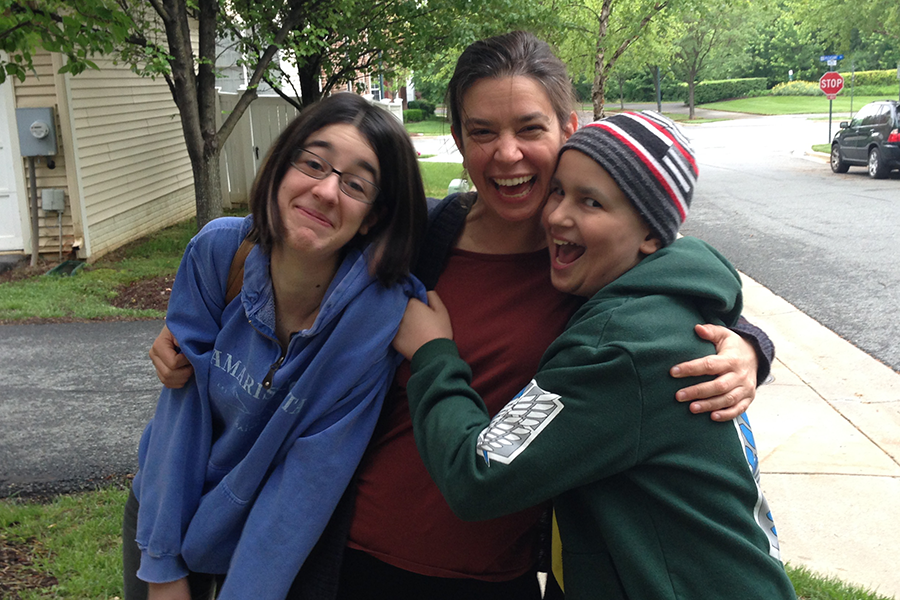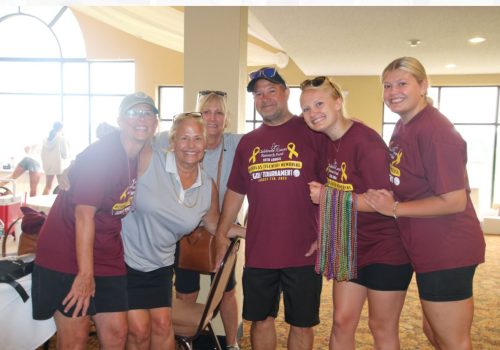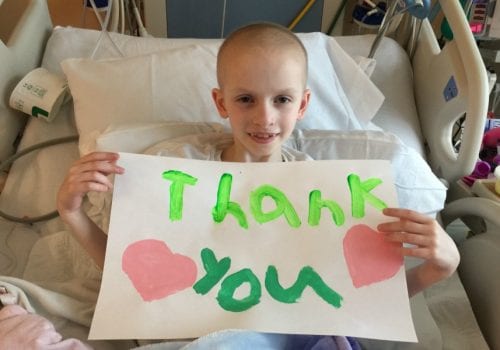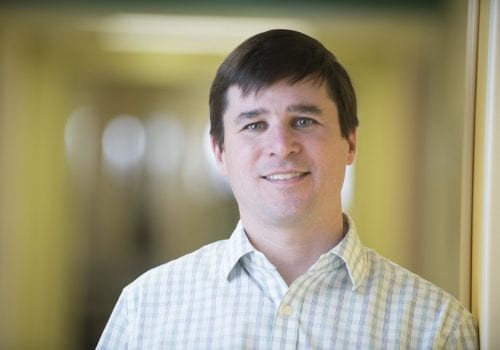Osteosarcoma is so overwhelmingly good at overcoming current treatments that it may just take a rocket scientist to help defeat it.
Theresa Beech is exactly that space engineer who is making progress toward understanding the genetics behind the relapsed form of the deadly disease. And as the mom of Daniel, who died of osteosarcoma when he was 13, perhaps no one is as familiar with how devastating the bone cancer can be.
“He died horribly after great pain and suffering,” she said. “And what is happening today is the same as what happened 10 years ago, 20 years ago and even 30 years ago, because the treatment protocol for osteosarcoma today is exactly the same as it was 30 years ago. Identical.”
Daniel died only two years after his diagnosis. While he was in hospice care, Theresa decided she had to do something more to help her son. She had his tumor genetically tested, and she used her skills as a NASA space engineer to run statistical, pattern and network analyses of Daniel’s genetic data to crack the fatal code behind his bone cancer.
During her day job, Theresa designs space missions, and she discovered that cancer cells use similar communication networks to her to work with space satellites.
After learning some cell biology, she ultimately identified two drugs which corresponded to mutations in his tumor and prolonged his life.
Knowing she was onto something, Theresa also asked osteosarcoma patients and their parents if she could analyze their medical history and patients' tumors' genetic data.
With this data, she pulled together the IRB-approved POWR, the Patient/Parent Osteosarcoma Genome-Wide Registry. Using both a patient’s genetic data and medical record, she could try to correlate a child’s tumor’s genetic make-up with their outcome.
She found that osteosarcoma has genetic subtypes, and some are more fatal to children than others. Two of the most aggressive and destructive subtypes are called MYC and ATRX.
“Kids who have MYC amplified typically die within 1-2 years [of diagnosis],” she said. “The disease progresses like wildfire.” MYC amplified and ATRX inactivated tumors are mutually exclusive: in other words, a tumor is either MYC amplified or ATRX inactivated, but almost never both. Both types of tumors are highly fatal.
About 20 percent of tumors in children are the RB1 subtype of osteosarcoma. This subtype responds particularly well to current treatments as measured by cell necrosis, although it is not clear if it correlates directly with survival.
This data is being used as part of the justification for a ground-breaking clinical trial supported in part by Children’s Cancer Research Fund’s Zach Sobiech Osteosarcoma Fund.
Using similar methods Theresa used to find drugs for Daniel’s type of osteosarcoma, she is working with researchers at the University of California- San Francisco to develop the trial and identify key altered genes for individual patients and find matching drugs to their genetic subtype.
Together, they plan to design an “umbrella” trial in which osteosarcoma patients will be placed in subtypes or “baskets.” Then, patients will be given specific, targeted treatments specific to their genetic subcategory.
Theresa aims to get osteosarcoma subtypes recognized and used regularly in the medical community so that doctors can target treatments early-on in a child’s diagnosis and prolong children’s lives, especially those who have the most aggressive form of osteosarcoma.
“We are delighted to support the work that has been inspired by Daniel Garcia-Beech and led by the team at UCSF. We hope this project leads to new understanding about this disease and new hope for more effective treatments.” John Hallberg, CCRF CEO
Written by Theresa Beech
Theresa Beech is a single mom to two kids, Daniel and Sara. She is a space engineer (aka rocket scientist) working on NASA missions. When Daniel was 11, he was diagnosed with osteosarcoma, an extremely aggressive and deadly form of bone cancer. Two years later he was dead. While Daniel was on hospice, Theresa started doing research on osteosarcoma genetics and was able to identify two drugs which corresponded to mutations in his tumor and prolonged his life. She has continued her research since his death and is the Principal Investigator of POWR, the Patient/Parent Osteosarcoma Genome-Wide Registry, believed to be the largest genetic and medical registry of osteosarcoma data in the world.
Support Theresa’s work through the Zach Sobiech Osteosarcoma Fund
Zach and his family helped start the Zach Sobiech Osteosarcoma Fund at Children’s Cancer Research Fund. Directed proceeds from his music and other fundraisers help researchers tackle osteosarcoma.




